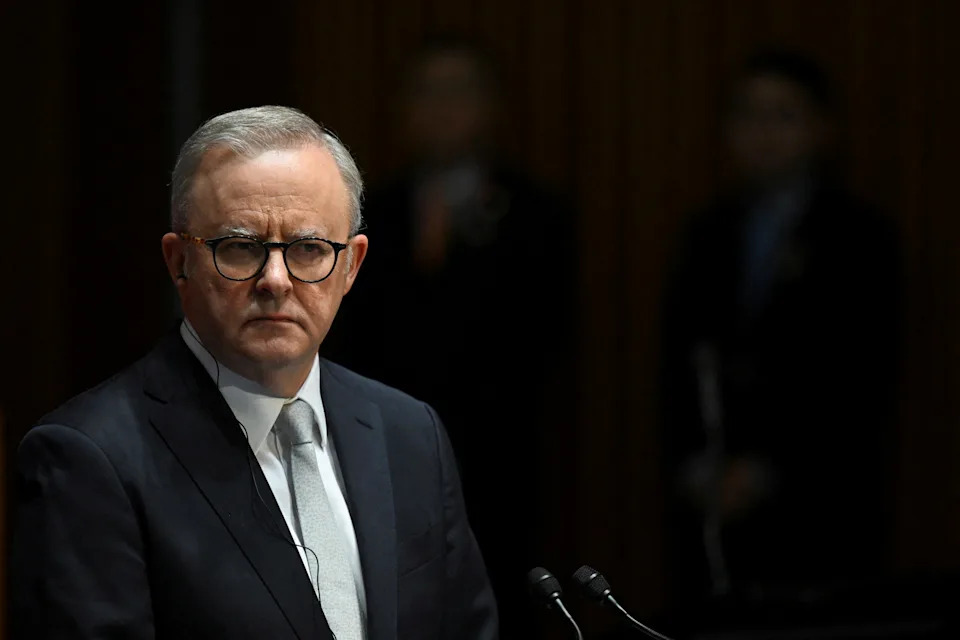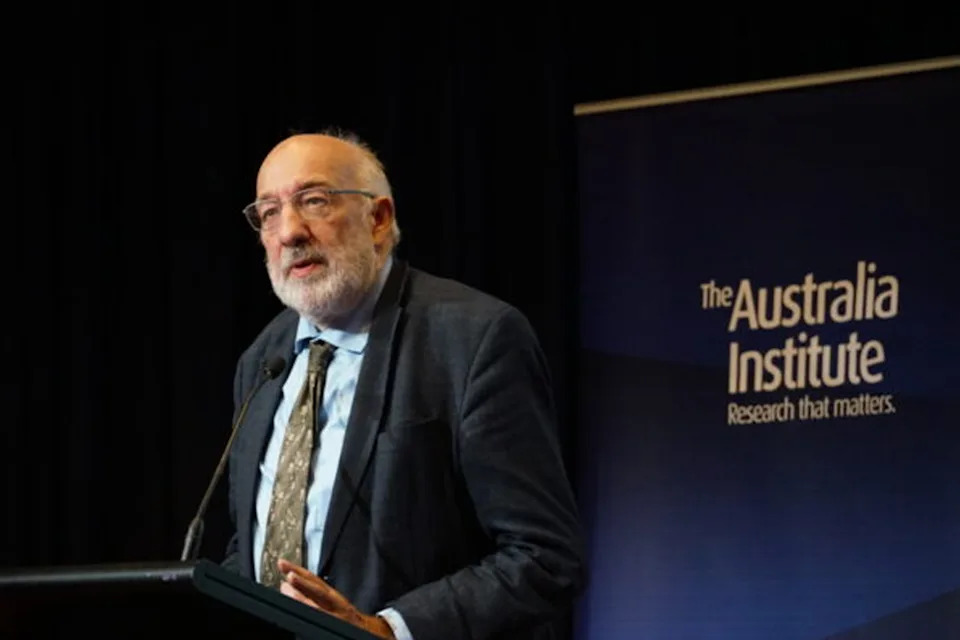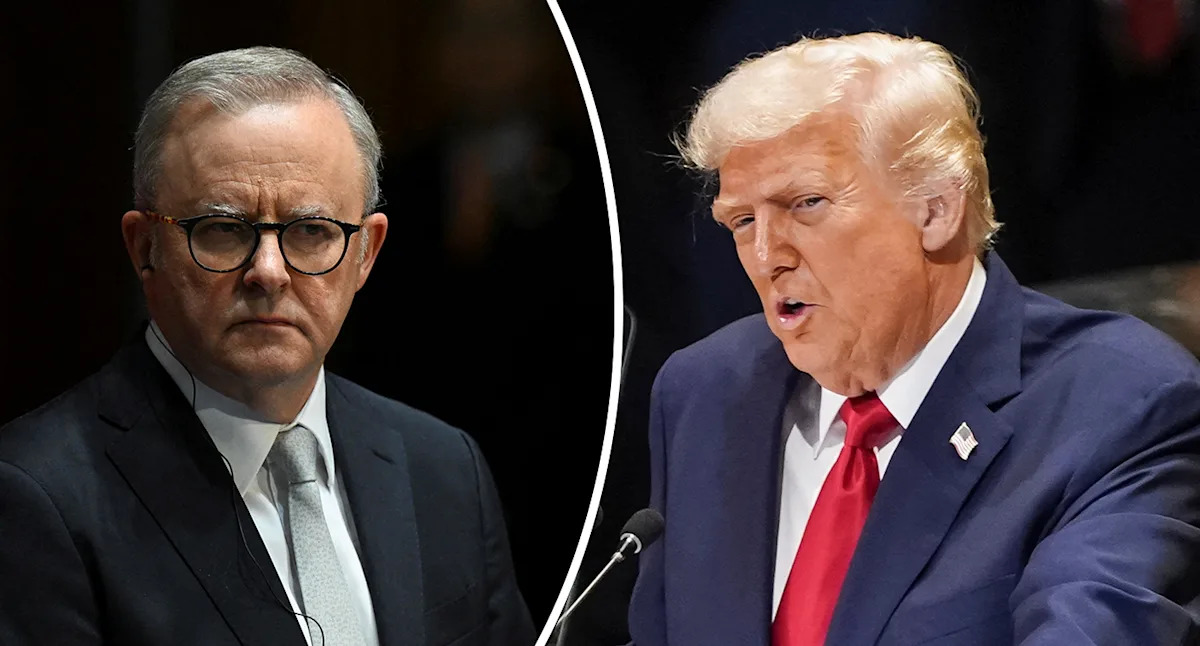US President Donald Trump’s persistent questioning of the reality of climate change and his embrace of the fossil fuel industry could be impacting Australia’s aspirations to reduce emissions, a leading expert has warned.
Dr Bill Hare, a senior scientist and CEO of the Climate Analytics thinktank, believes the Trump administration’s rhetoric is creating “an enabling environment for low ambition”.
“In Australia, what it means is the opposition parties are empowered to have a crack at getting rid of net zero, and at their extreme ends dismissing concerns about climate change in a very Trumpian way,” he told Yahoo News.
“Politics 100 tells you that creates a space for the Albanese government to do less than it would otherwise be compelled to do.”
Australia has faced more severe and frequent extreme weather events due to global warming, and they are expected to worsen over the next decade if global emissions are not significantly reduced.
The Paris Agreement, which was adopted by 195 Parties at the UN Climate Change Conference (COP21) in 2015, agreed to limit the world’s average temperature rise this century to well below 2 degrees above pre-industrial levels, while pursuing a limit of 1.5 degrees. Hare contributed to the Agreement, along with other key climate agreements, including the 1997 Kyoto Protocols and the 1992 UN Framework Convention on Climate Change.
President Trump, who has withdrawn from the Paris Agreement twice, sensationally told the United Nations General Assembly on Tuesday that climate change was “the greatest con job ever perpetrated on the world”. That’s despite the vast majority of scientists agreeing that humans are causing rising temperatures.
Addressing countries that have embraced green energy, he added, “If you don’t get away from this green scam, your country is going to fail”.
How Hare believes Trump is impacting Australia’s ambitions
If Australia’s opposition parties were united in calling for faster emissions reduction, then Hare believes the Albanese government would be forced to be more ambitious and have a stronger Nationally Determined Contribution (NDC) — a country’s individual commitment to reduce emissions.
“We’re seeing a similar political dynamic at work in Europe, where some of the right-wing parties are using the Trump administration’s attitude on climate change to try and slow down, block or obstruct the European Union’s NDC itself,” Hare said.

Australian Prime Minister Anthony Albanese’s 2035 emissions reduction target is lower than many climate scientists had hoped for. Source: Reuters
Overnight, China announced at the UN General Assembly that it would agree to reduce emissions for the first time, setting a target of 7 to 10 per cent by 2035 compared with its peak. Hare, who described this NDC as “very disappointing”, said the soft US position on climate change is likely being used politically in China, where the coal lobby is “very powerful”.
Hare describes 2025 as a “dangerous time” in the campaign to reduce global emissions because the fossil fuel industry is “fighting back” against the transition to switch to green or clean energy.
“Inadequate” is how he describes the Australian government’s 2035 target of reducing emissions by 62 to 70 per cent. He believes the target was set with the interests of the Business Council of Australia and the mining and gas industries in mind, because it was “something they could live with”. But he argues it should be at least 75 per cent to continue on a pathway of 1.5 degrees of warming, something the United Kingdom is committed to with a target of 81 per cent.

Dr Bill Hare giving a speech at the Australia Institute independent thinktank. Source: Climate Analytics
How China is influencing green energy transition
While Hare is concerned about China’s NDC, he’s impressed by its rollout of a large-scale green energy system, including solar panels, electric vehicles and even aircraft.
“This will be one of the more important economic transformations ever. And I think the role China is playing in these markets will be one of the most dominant features of the next 20 years,” he said.
The change is already influencing the rollout of batteries and solar panels from Australia to Africa. And with the European Union continuing to scale up green technologies, Hare believes economic pressure will continue to grow, driving the transition away from fossil fuels.
Love Australia’s weird and wonderful environment? 🐊🦘😳 Get our new newsletter showcasing the week’s best stories.


